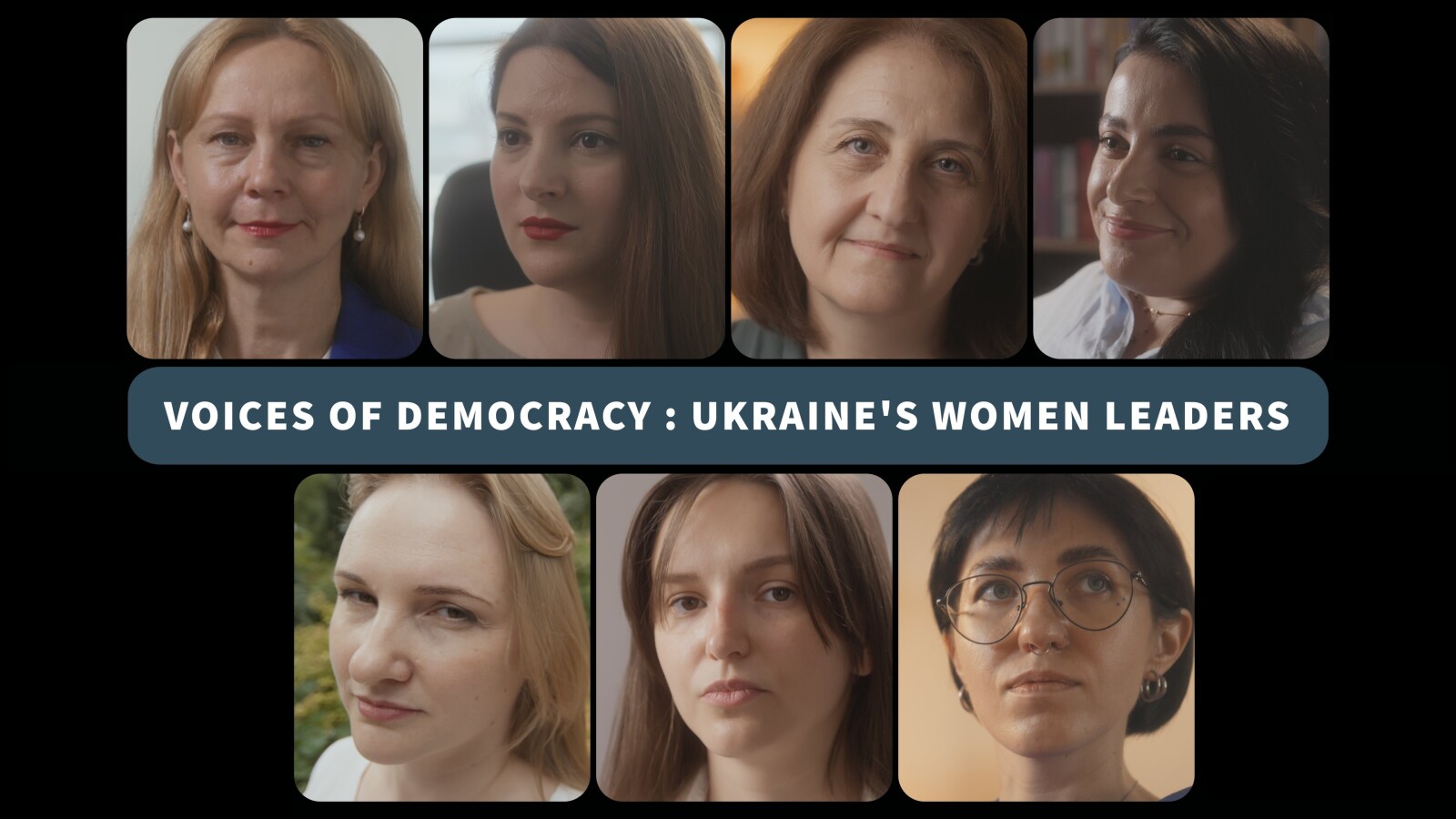
‘Voices of Democracy: Ukraine's Women Leaders’ premiered in Brussels at the Ukrainian Civil Society Hub. The film features seven incredible women who lead EED’s partner organisations in Ukraine. They, together with many other women across Ukraine, are working tirelessly to protect human rights, safeguard free speech, and bring people together.
The women featured in this film are: Kateryna Pereverzeva of Lyuk Media, a media covering cultural activities in war-torn Kharkiv; Leyla Djaksim of the Crimean Tatar Cultural and Sports Centre ‘Kuresh’, empowering Crimean Tatars to take part in civic life; Liubov Halan of Human Rights Centre 'Pryncyp' working with war veterans and their families; Mariia Nikitina of Zahyst, defending the rights of people with disabilities in Chernivtsi; Natalia Drodz of Dobrochyn Center NGO creating opportunities for youth in rural areas; Olga Reshetylova of the Media Initiative for Human Rights, monitoring human rights violations in the occupied territories; and Sofiia Skyba of Pershyi Kryvorizkyi, one of the few independent media in the city of Kryvyi Rih.
After the screening, journalist Andrew Cave moderated a conversation with Liubov Halan and Veronika Kucherchuk, Programme Officer at the EED. They discussed the challenged faced by veterans in Ukraine and how to best support them, as well as the EED’s activities to support Ukrainian civil society during these extraordinarily harsh circumstances.
Speaking of her organisation’s work, Liubov stressed the unique challenges faced by Ukrainian veterans. ‘The scale of the invasion and the format of war places extra pressures on servicemen physical and mental health’ she said. With most of the fighters coming from non-military backgrounds, the length and emotional weight of Russia’s invasion take a psychological toll. To help veterans after demobilisation, Pryncyp works with the government of Ukraine to relaunch its veteran strategy and develop the social services the community needs.
On behalf of the EED, Veronika highlighted how despite the challenges of working in a warzone, many of the EED’s partners have remained in Ukraine where they are holding their government to account and are continuing to push for deeper democratisation despite the many challenges. ‘There are still many democracy defenders inside Ukraine that need our support and we will provide it,’ she stated. EED has partnered with Ukrainian civil society since its foundation and will continue to support their efforts.
This initiative was supported thanks to the contributions of the European Commission and of the Government of Canada to EED.